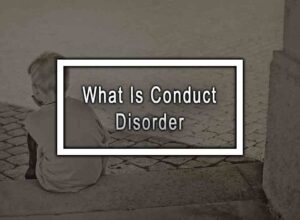Table of Contents
ToggleUnderstanding Chronic Fatigue Syndrome: 10 Facts You Should Know
Chronic Fatigue Syndrome, also known as Myalgic Encephalomyelitis (ME/CFS), is a complex and debilitating condition that affects millions of people worldwide. It is characterized by severe exhaustion that does not improve with rest, and symptoms can include cognitive dysfunction, muscle and joint pain, headaches, and sore throat, among others. Despite its prevalence, ME/CFS is still not well understood, and there is no cure for the disease. In this listicle, we’ll explore 10 things you should know about chronic fatigue syndrome.
Chronic Fatigue Syndrome is Not Just Feeling Tired
CFS is a chronic and complex illness that is often misunderstood. It is not simply feeling tired, but a debilitating condition that affects a person’s daily life and ability to function. The exhaustion experienced by individuals with ME/CFS is often described as a deep, unrelenting fatigue that does not improve with rest and can worsen with physical or mental activity.
Chronic Fatigue Syndrome is Difficult to Diagnose
There is no specific test for CFS, and the diagnosis is often a difficult process that can take years. The symptoms of the disease are similar to many other conditions, making it challenging to pinpoint. Doctors usually take a thorough medical history, perform a physical exam, and exclude other potential causes of the symptoms.
Chronic Fatigue Syndrome Affects Women More Than Men
CFS is more prevalent in women than men. According to the CDC, women are four times more likely to be diagnosed with CFS than men. However, it’s still not entirely clear why this is the case. Some theorize it may be a result of differences in hormones, genetics, or immune function.
Chronic Fatigue Syndrome is Often Underdiagnosed
CFS is often underdiagnosed, and some people may not even be aware that they have the condition. Due to the complexity of the disease and the lack of understanding surrounding it, many doctors may dismiss a patient’s symptoms or misdiagnose them.
Chronic Fatigue Syndrome Can Have A Significant Impact on Daily Life
CFS can have a significant impact on a person’s daily life, causing them to miss work or school and limiting their ability to engage in activities they enjoy. The severity of symptoms can vary from day to day, making it challenging to plan activities or social engagements.
Chronic Fatigue Syndrome is Linked to Other Conditions
Research has shown that CFS is often associated with other chronic illnesses such as fibromyalgia, Lyme disease, multiple sclerosis, and autoimmune diseases. This can make the diagnosis and treatment of CFS even more complicated.
Chronic Fatigue Syndrome Can Affect Cognitive Function
In addition to physical fatigue, many patients with CFS also experience cognitive dysfunction, commonly referred to as “brain fog.” This can include difficulty concentrating, memory problems, and difficulties with language and processing information.
There is Still No Cure for Chronic Fatigue Syndrome
Despite the growing understanding of CFS, there is still no cure for the condition. Management of symptoms is the primary focus of treatment, which can include medications, lifestyle changes, and support from healthcare professionals.
Research into Chronic Fatigue Syndrome is Ongoing
Despite the lack of a cure, there is ongoing research into ME/CFS to better understand the condition’s cause and potential treatments. This research includes studies on genetics, immunology, and neurology.
Support is Available for People with Chronic Fatigue Syndrome
For those living with CFS, various resources, including support groups, advocacy organizations, and healthcare providers, can help provide support and advice for managing the condition’s symptoms.
Managing Chronic Fatigue Syndrome: Resources and Hope for Those Living with ME/CFS
Chronic Fatigue Syndrome or ME/CFS is a chronic illness that affects millions worldwide, yet it is still widely misunderstood. It can be a challenging and debilitating condition, impacting daily activities, and causing exhaustion and cognitive dysfunction. Although there is no cure for CFS, research into understanding its cause and managing its symptoms continues. Support and resources are available for individuals with this condition, providing the tools needed to manage and improve their quality of life.
Chronic Fatigue Syndrome FAQ
Here are the most common questions about chronic fatigue syndrome.
What causes CFS?
The exact cause of chronic fatigue syndrome is unknown, but it is believed to be a combination of genetic, environmental, and psychological factors.
Is there a cure for CFS?
There is no cure for CFS. Treatment focuses on managing symptoms and improving quality of life.
How is CFS diagnosed?
There is no definitive test for CFS. Diagnosis is based on a patient’s reported symptoms and ruling out other possible medical conditions.
Can CFS be prevented?
There is no known way to prevent CFS, but healthy lifestyle choices such as getting enough sleep, eating a nutritious diet, and managing stress may help reduce the risk.
Can CFS be treated with medication?
There is no medication specifically designed to treat CFS, but various medications may be used to manage symptoms such as pain, sleep problems, and depression.












